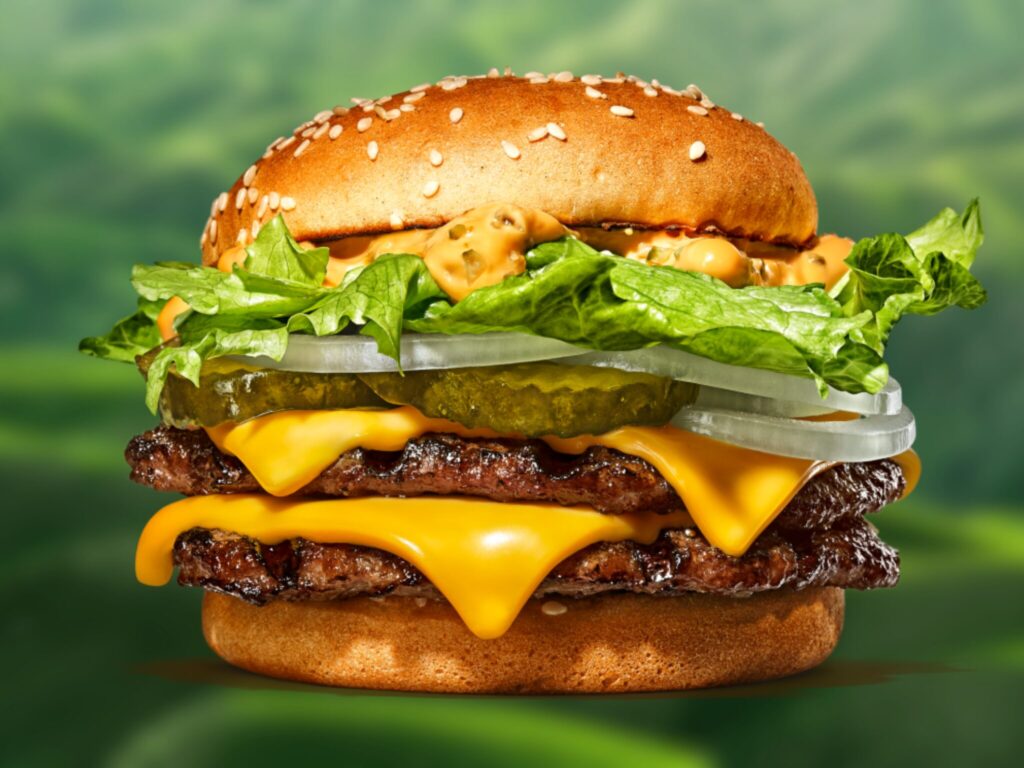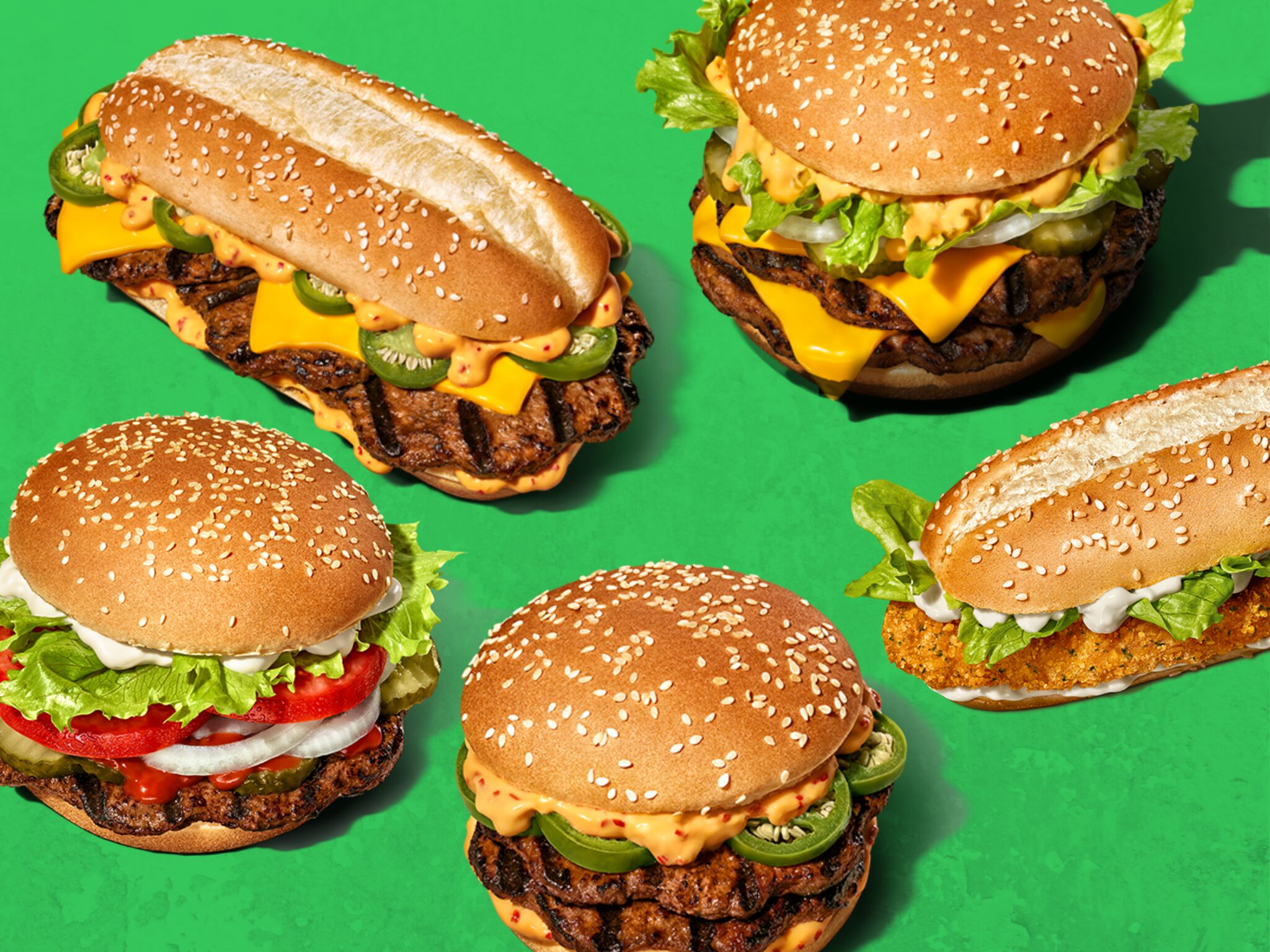Plant-Based for Everyone: Burger King Germany Makes All Vegan Products Cheaper than Meat
5 Mins Read
Burger King has made all plant-based products and meals cheaper than meat across its German operations to encourage increased vegan consumption. It will develop a new flower-shaped patty with The Vegetarian Butcher to differentiate beef burgers.
Burger King Germany has made a groundbreaking move to make veganism more accessible to customers, with all plant-based dishes now cheaper than those containing meat.
It has unveiled a new motto, ‘Plant-Based for Everyone’, to coincide with the announcement, which will see the markup for its vegan items like the Whopper, chicken nuggets and Long Chicken sandwich be reduced by 10 cents.
It’s a landmark decision: the fast-food chain says it has the largest vegan range in German QSR, with a meat-free (sometimes vegetarian) alternative to almost every menu option. The price cuts play into consumer trends in the country, with a large EU-backed survey last year revealing that 39% of Germans find plant-based alternatives too expensive, making price the biggest purchase barrier.
“Since the mid-1990s, we have been investing in vegetarian alternatives and have shown that fast food doesn’t always have to mean meat. As a pioneer, we offer by far the largest plant-based range in the German foodservice industry – and now even with a price advantage,” said Burger King Germany CEO Jörg Ehmer. “We are thus providing a strong impetus to try out plant-based options. Our goal: to offer guests freedom of choice – without compromising on taste.”
A new flower-shaped vegan beef patty

Alongside the price reductions, Burger King is working with Unilever-owned plant-based meat brand The Vegetarian Butcher on a new flower-shaped patty for its vegan beef burgers, which will be rolled out in the coming weeks. This is meant to help distinguish between the conventional beef and plant-based options, and follows the development of a breading with parsley sprinkles to differentiate between its chicken patties and nuggets.
The Vegetarian Butcher has supplied plant-based beef and chicken analogues to Burger King since 2019. Their partnership exists in multiple markets, including the UK, Indonesia, China, the UAE, Mexico and Costa Rica (in the US, the fast-food chain works with Impossible Foods).
For Veganuary, it launched the Veggie King Deluxe, which the company says was “very successful”, and now, it plans to develop more plant-based products for its menu. It cements Burger King’s vegan leadership in the European fast-food space, with a report last year noting that it has the highest number of plant-based mains across the leading chains in Europe.
“We are the first choice in terms of plant-based options in the foodservice industry, and continue to drive the growing trend towards alternative protein sources in Germany,” added Ehmer. “For this, we are not only developing our products and processes further, but also focusing on greater product variety and easier access.”
The company has established a credo for all its plant-based products: ‘0% meat. 100% flavour.’ This focus on taste is smart, given that flavour is the top motivating factor for choosing plant-based alternatives in Germany, with 55% citing it.
Burger King follows consumer trends in Germany

Burger King Germany’s price cuts for plant-based meat represent a shrewd move, considering that it is the largest vegan market in Europe, and with a growing willingness to cut back on meat consumption. In fact, 59% of Germans reported eating less meat in 2022 than the year before – the joint-highest in the EU.
This makes sense when you realise that Germany has the largest flexitarian population in Europe, with the EU survey putting that figure at 40%. An earlier USDA report, however, says as many as 55% of Germans follow a flexitarian diet. Burger King Germany’s marketing head Klaus Schmäing has previously said that flexitarians are the company’s main target.
“The large group we want to address are flexitarians,” he said. “But beyond that, of course, also vegetarians and vegans.” (The EU poll found that Germany had the second-largest vegan population in the region too, at 4% of the population.) And last year, Burger King Germany revealed that one in every five Whoppers it sells are plant-based, and likewise for nearly one in four Long Chickens.
So the demand is clearly there – and it’s something the government has identified too, having earmarked €38M in the 2024 federal budget to promote alternative protein consumption and a switch to plant-based agriculture, as well as open a Proteins of the Future centre.
“With this decision on the protein transition, the coalition is taking a big step towards the transition to a sustainable food system laid out in the coalition agreement,” said Ivo Rzegotta, senior public affairs manager for Germany at the Good Food Institute Europe, an alternative protein think tank. “The agreed funding measures for research and transformation will put Germany on the path to becoming a leader in this emerging field.”
Burger King isn’t the only company to reduce prices and make plant-based food more accessible in Germany. In October, discount retailer Lidl announced that most of its own-label products from the Vemondo plant-based range would be at price parity with or cheaper than conventional meat and dairy products, explaining that “conscious and sustainable consumption” is only possible if these foods are “affordable and more easily accessible for everyone”.
Lidl’s announcement was swiftly followed by Kaufland, which dropped the prices of 90 vegan products to make them competitive or more affordable than their animal-based counterparts. Rewe Group’s BILLA and Penny have made identical moves, as has Aldi Süd.
With its whopping decision, Burger King Germany has added itself to that list.



